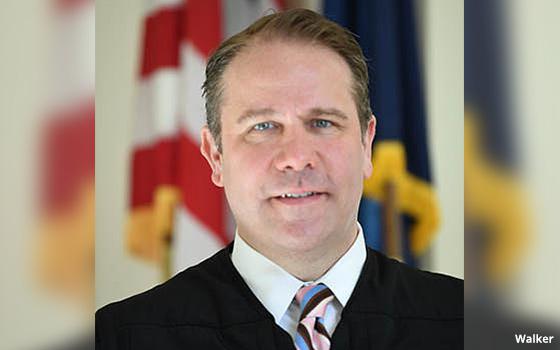
The broadband industry is urging a federal judge to quickly
invalidate Maine's new privacy law, which requires internet service providers to obtain people's consent before using web-browsing data for ad targeting.
“The statute violates the First
Amendment,” ACA Connects -- America's Communications Association, CTIA -- The Wireless Association, NCTA -- The Internet & Television Association, and USTelecom -- The Broadband Association,
write in a motion filed last week with U.S. District Court Judge Lance Walker in Bangor. “It excessively burdens ISPs’ beneficial, pro-consumer speech about a wide variety of subjects,
with no offsetting privacy-protection benefits.”
The industry groups first sued over the law in February. They argue in their new papers the underlying facts are clear-cut enough that
the legal issues can be decided “on the pleadings” -- meaning without a trial or the exchange of evidence.
advertisement
advertisement
Maine's law, passed last year and slated to take effect in July, largely
re-creates a set of privacy rules passed in 2016 by the Federal Communications Commission, but revoked by Congress the following year.
The measure prohibits broadband carriers from
“using, disclosing, selling or permitting access to customer personal information” without people's explicit consent. It also prohibits carriers from either refusing service to people who
don't consent to tracking or charging different rates to people based on whether they consent to tracking.
Maine's law only applies to companies that offer broadband access, like Comcast and
AT&T, as opposed to search engines, social networking platform and other so-called “edge” providers.
The broadband industry groups contend the law violates their free speech
rights in numerous ways, including by restricting their ability to collect and use consumer data, while allowing other companies to continue gathering data for ad purposes.
“The statute
is riddled with irrational distinctions that undermine its ostensible
purpose of protecting consumer privacy,” the organizations write in their new papers. “It applies only to
ISPs, even though myriad other businesses collect, use, and sell consumer information to an equal and often greater extent.”
The broadband industry (along with the ad industry and other
business groups) has often argued that internet access providers shouldn't be subject to tougher privacy rules than companies like Facebook or Google.
But privacy advocates say there are good
reasons to treat Internet service providers differently -- including that ISPs have comprehensive access to information about subscribers' web activity.
The broadband organizations say in
their most recent court filing that internet service providers often “have less access to the data that customers transmit over the internet” than companies like Google.
“Individuals increasingly send data over the Internet through encrypted channels, including through websites’ widespread adoption of HTTPS,” the groups write. “When data are
encrypted, an ISP can 'see' that a customer used its networks to retrieve or send data from or to a particular website (e.g., google.com); but, unlike the edge provider that operates the website, the
ISP cannot 'see' the content of that communication or determine what actions the customer performed on that website (e.g., the specific search on google.com).”
Internet service providers
have raised that argument in the past, but it's been met with skepticism by advocates and other observers.
In 2016, the policy consultancy Upturn reported that, despite the growing use of encryption, internet service providers
can see a significant amount of internet activity, and can infer “substantial amounts of sensitive information” from that data.
The broadband industry groups also argue Maine's law should be vacated for vagueness. They contend the measure is ambiguous in a few respects, including whether it applies to everyone who uses
broadband while in the state Maine, or only to Maine residents.
Additionally, the industry argues, the state law conflicts
with federal policy because it largely reinstates a set of nationwide rules that Congress repealed in 2017.